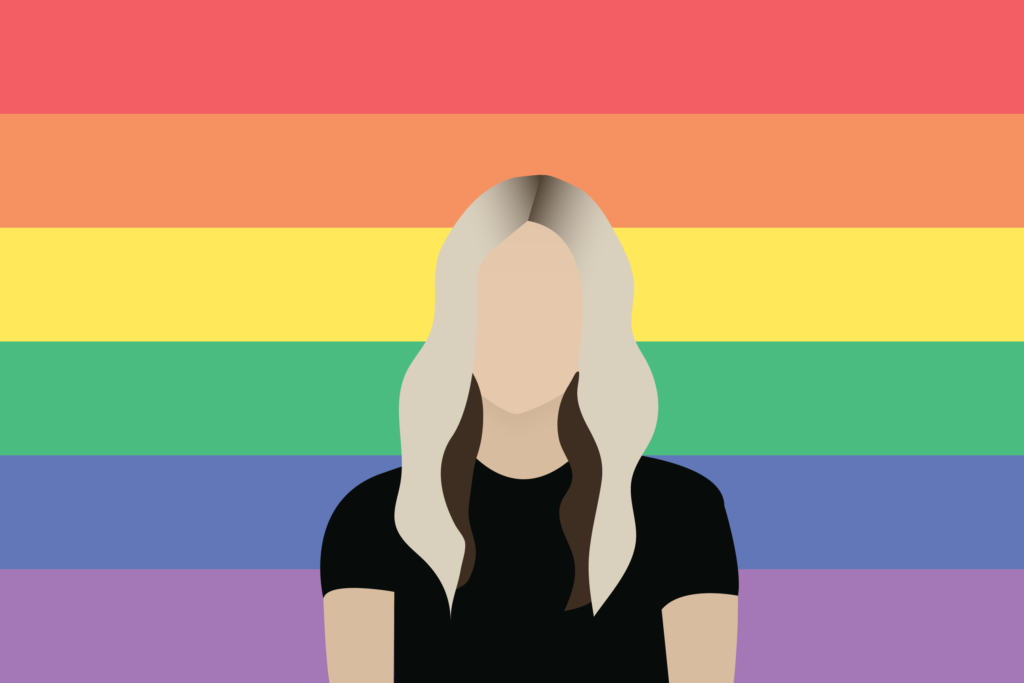Homosexuality is just as diverse and complex as heterosexuality, encompassing a broad spectrum of experiences and emotions. Individuals who identify as homosexual often face a unique set of challenges. As such, homosexual counseling, specifically tailored to cater to these unique needs and experiences, is pivotal. This blog post aims to delve into the importance of it, issues it can address effectively, and how to find the right counselor near me.
Contents
Significance of Specialized Counseling for Homosexual Individuals
 In a society where the majority identifies as heterosexual, individuals who identify as homosexual can often experience unique challenges and pressures. This is where specialized counseling for homosexual individuals plays a crucial role, offering tailored support to navigate these specific experiences.
In a society where the majority identifies as heterosexual, individuals who identify as homosexual can often experience unique challenges and pressures. This is where specialized counseling for homosexual individuals plays a crucial role, offering tailored support to navigate these specific experiences.
Here are a few reasons why this specialized counseling is so important:
1. A Safe Space
It provides a safe, confidential, and non-judgmental space for individuals to express their feelings, experiences, fears, and aspirations related to their sexuality. This is paramount in promoting positive mental health and overall well-being.
2. Understanding and Self-Acceptance
Counselors trained in homosexual counseling can help individuals better understand their sexuality and guide them on the path of self-acceptance. They can also provide useful resources and strategies for dealing with self-doubt and confusion.
3. Dealing with Discrimination and Stigma
Homophobia and discrimination are unfortunately still widespread in many societies. Counselors can equip individuals with the tools and resilience to cope with these external pressures and address any trauma or emotional distress. That might have resulted from experiences of prejudice or discrimination.
4. Relationship Guidance
Homosexual counseling can also provide specific guidance on navigating relationships, exploring intimacy, and managing potential conflicts that may arise due to differences in sexual orientation.
5. Enhancing Overall Mental Health
Studies have shown that LGBTQ+ individuals are at a higher risk for mental health issues, including anxiety and depression, compared to their heterosexual counterparts. Specialized counseling can help mitigate these risks by providing targeted mental health support.
Common Issues Addressed In Homosexual Counseling
Homosexual counseling, like other forms of therapeutic intervention, addresses a broad spectrum of issues. Here are a few common ones:
Identity Acceptance
One of the fundamental aspects of homosexual counseling is helping individuals accept and embrace their sexual orientation. This can involve overcoming internalized homophobia, understanding one’s identity, and nurturing self-love and acceptance.
Coming Out
The process of disclosing one’s sexual orientation to others can be fraught with anxiety, fear, and uncertainty. Counselors can help clients strategize and prepare for this significant event, as well as process reactions and consequences afterward.
Discrimination and Homophobia
Experiences of discrimination, homophobia, and stigma can lead to trauma and emotional distress. Counselors can help individuals process these experiences and build resilience against future instances of prejudice.
Relationship Issues
Homosexual counseling often addresses relationship dynamics, exploring everything from healthy communication and intimacy to dealing with differences and conflicts that can arise from societal pressure or misunderstanding.
Mental Health Issues
Higher rates of anxiety, depression, and other mental health disorders have been noted within the LGBTQ+ community, often as a result of societal pressures and discrimination. Counselors can provide therapeutic support to manage and mitigate these issues.
Intersectionality
People within the LGBTQ+ community can also face additional discrimination or bias due to their race, ethnicity, or other identities. Counselors can help clients navigate these intersections and provide support accordingly.
Gender Expression and Identity
Although not exclusive to the homosexual population, many individuals also grapple with issues related to their gender identity or expression. A counselor can provide support in exploring and understanding these aspects.
Safe Sex and Health Issues
Discussing sexual health, including safe sex practices and understanding sexual consent, is an essential part of homosexual counseling.
Self-Esteem and Confidence
As with any therapeutic setting, building self-esteem and confidence is a fundamental goal. For homosexual individuals, this can also mean learning to confidently navigate a world that is often structured around heteronormative principles.
These are just some of the issues addressed in homosexual counseling. The goal is to provide a safe, affirming space where individuals can explore their identities, express their feelings, and learn strategies to deal with specific challenges related to their sexual orientation.
Tools And Techniques Used In Homosexual Counseling
 The exact methods used can depend on the counselor’s approach, the client’s needs, and the specific issues at hand. However, some commonly used tools and techniques include:
The exact methods used can depend on the counselor’s approach, the client’s needs, and the specific issues at hand. However, some commonly used tools and techniques include:
- Affirmative Therapy
This approach is foundational in homosexual counseling. It acknowledges and respects the client’s sexual orientation and identity, fostering a supportive environment that promotes self-acceptance and positive self-image.
- Cognitive-Behavioral Therapy (CBT)
This method helps clients identify and challenge negative thought patterns and beliefs that may have resulted from societal prejudices or internalized homophobia. CBT can be beneficial in managing mental health issues like anxiety and depression.
- Psychodynamic Therapy
This approach can help clients explore how their past experiences and relationships, including early family dynamics, have shaped their feelings about their sexual orientation. It can be particularly useful in understanding and addressing internal conflicts about one’s identity.
- Family Systems Therapy
If a client’s family is open to participation, this therapy can help address family dynamics, facilitate understanding, and promote healthier communication and relationships.
- Mindfulness and Stress Management Techniques
These can include various relaxation techniques, breathing exercises, and mindfulness practices. They can be particularly beneficial in helping clients cope with stress, anxiety, or trauma related to experiences of discrimination or coming out.
- Solution-Focused Brief Therapy (SFBT)
This approach focuses on finding solutions to current problems and setting realistic goals for the future. It can be especially helpful for clients who are seeking more immediate solutions to specific issues.
- Art Therapy
Art therapy can help individuals express complex or suppressed emotions that may be challenging to articulate verbally. This therapeutic modality uses various forms of art to explore emotions and experiences related to one’s sexual orientation.
These tools and techniques are not unique to homosexual counseling, but they are often applied in ways that consider the unique experiences, challenges, and strengths of homosexual individuals. It’s essential for the counselor to take a flexible, personalized approach, adapting their methods to best support each client’s individual needs.
Tips To Find The Right Counselor
 Here are some tips to help find the right counselor:
Here are some tips to help find the right counselor:
1. Look for LGBTQ+ Affirming Credentials
It’s important to choose a counselor who is not only knowledgeable but also affirming and supportive of LGBTQ+ individuals. Many professional organizations offer specialized training in LGBTQ+ mental health. So you can look for counselors who have these credentials.
2. Ask for Recommendations
Personal recommendations from trusted friends, family members, or other members of the LGBTQ+ community can be very valuable. LGBTQ+ community centers or advocacy groups can also provide recommendations.
3. Evaluate Their Communication Style
A good therapeutic relationship requires clear, open, and empathetic communication. Pay attention to how potential counselors communicate during initial interactions or consultations.
4. Check Their Website or Professional Profile
Many counselors will provide information about their specializations, approaches, and background on their professional websites or online profiles. This can give you a sense of their expertise and whether they might be a good fit.
5. Attend a First Session or Consultation
Many counselors offer initial consultations, either for free or at a reduced rate. These can be a good opportunity to get a feel for their style, approach, and whether you feel comfortable with them.
6. Trust Your Gut
Ultimately, you should feel comfortable with your counselor. Trust your instincts about whether you feel heard, respected, and understood.
7. Check Practical Considerations
Consider practical factors like location, cost, and availability. Online counseling can also be an option, providing flexibility and the option to choose from a wider range of counselors.
Remember that it’s okay to take time to find the right fit. And it’s okay to switch counselors if you don’t feel comfortable or if you’re not making the progress you’d like. The right counselor can make a significant difference in your therapeutic journey.
Conclusion
Homosexual counseling plays a pivotal role in addressing the unique needs and experiences of individuals within the LGBTQ+ community. It provides a safe space for self-exploration, promotes self-acceptance, and offers guidance in relationship and family dynamics. Utilizing a range of tools and techniques, counselors can help foster resilience and improve overall mental health for individuals navigating their identity.
However, the success of counseling largely hinges on finding the right counselor – one who is affirming, knowledgeable, and able to tailor their approach to the individual’s needs. It’s essential to find a counselor who resonates with you. As this relationship serves as the foundation of your therapeutic journey.
Life may sometimes be challenging for bisexuals, but Online Bisexual Counseling can help. Get experienced LGBTQ therapists at PrideMantra: Book a trial LGBTQ therapy session


